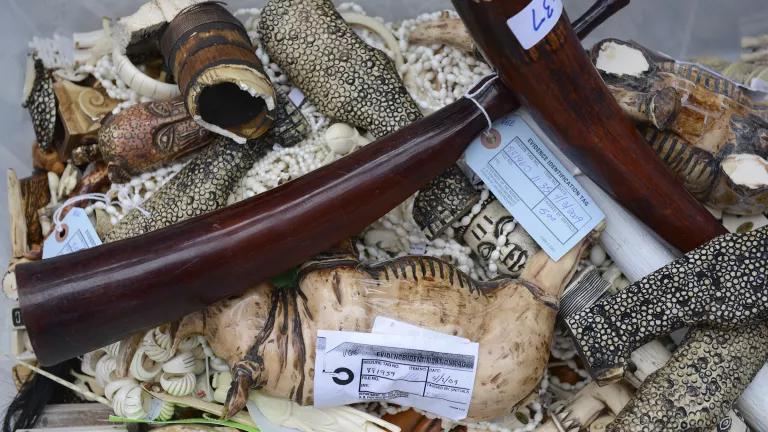NRDC Joins Fight to Defend New York’s Ivory Ban and Protect Elephants and Rhinos

With partners, NRDC is pushing to help protect the 2014 ban and stomp out the state’s illegal ivory and rhino horn market.
In the continued fight to save elephants and rhinos around the world, NRDC, together with the Center of Biological Diversity, the Humane Society of the United States, and the Wildlife Conservation Society, has asked to join a case on behalf of New York to defend the state’s ivory and rhino horn ban, which is being challenged by antiques traders.
“If we are going to keep endangered species on the planet, we have to think of them as more than decorations or furniture,” says Zak Smith, a senior attorney and director of NRDC’s Wildlife Trade Initiative. Elephant populations have been on the decline everywhere, with African forest elephant numbers plummeting about 62 percent between 2002 and 2013, putting them at risk for becoming extinct within 10 years.
Under the previous New York law, ivory sourced from Africa before 1978 or from Asia before 1976 was allowed as antiques. But dealers had been known to use that loophole to pass new ivory and horn as antiques. The 2014 state ban was enacted to help resolve this problem and help stem elephant and rhino poaching by making it illegal to sell any ivory and rhino horn (as well as mammoth), with just a few very strict exceptions. By doing this, New York was able to address the thriving illegal ivory and rhino horn market that still threatened endangered elephant and rhino populations worldwide. The 2014 ban also heightened the penalties for illegal wildlife trafficking.
“The dealers are clinging to a business model that puts these animals’ aesthetics over their preservation,” Smith says. “Their challenge to this historic ban is baseless, and we look forward to ensuring it stays on the books.”
NRDC has helped secure legislation in the country’s three top U.S. ivory markets: New York in 2014, California in 2015, and Hawaii in 2016. State-led elephant protections have become more important in the last year, as the Trump administration continues to roll back critical conservation policies.